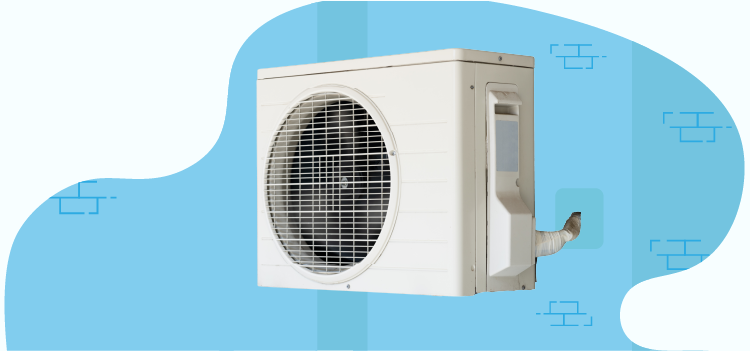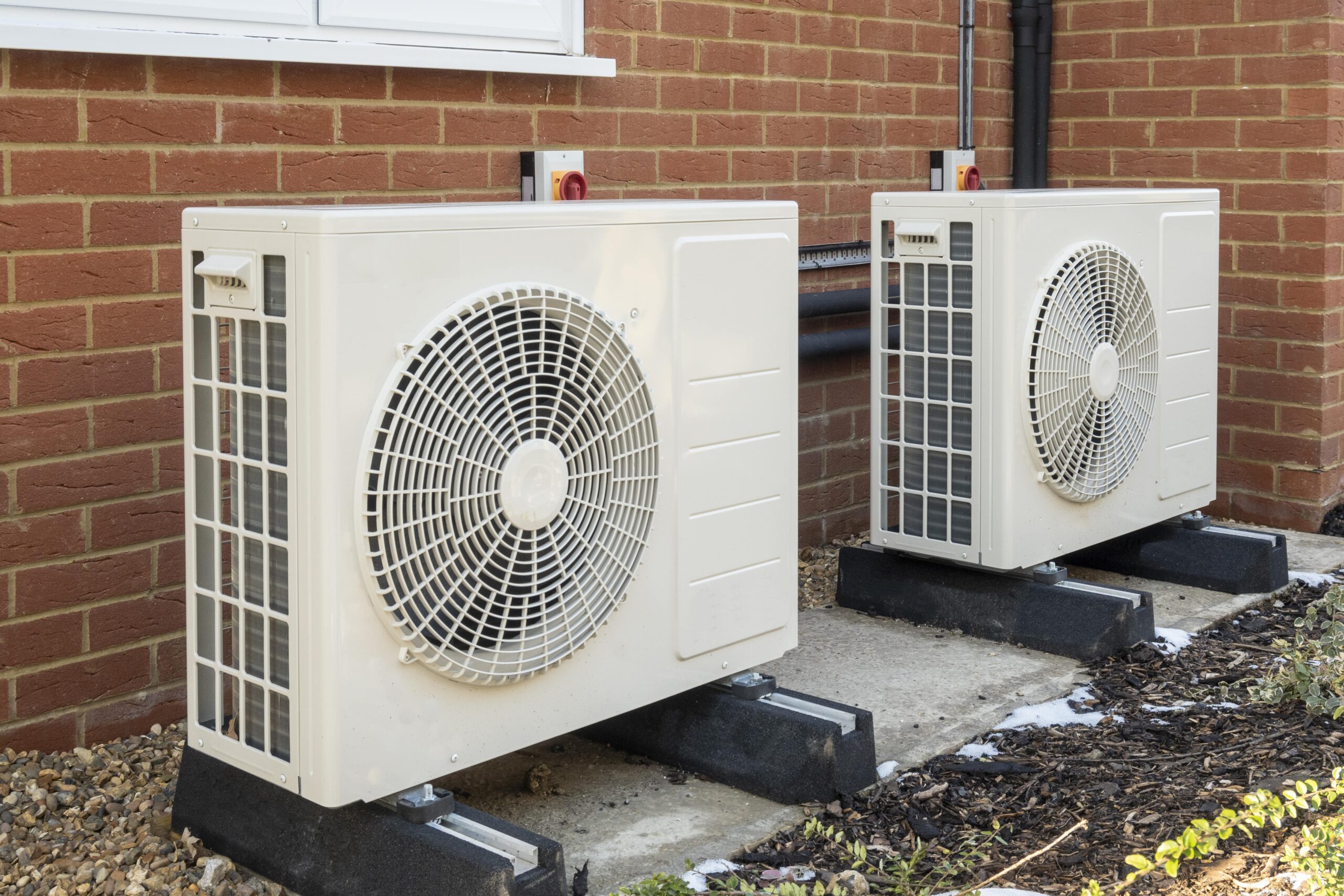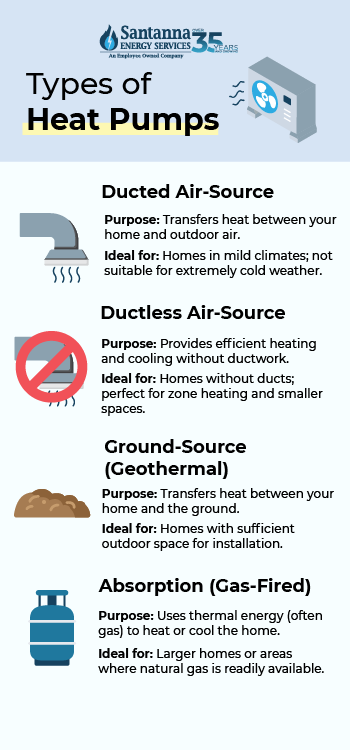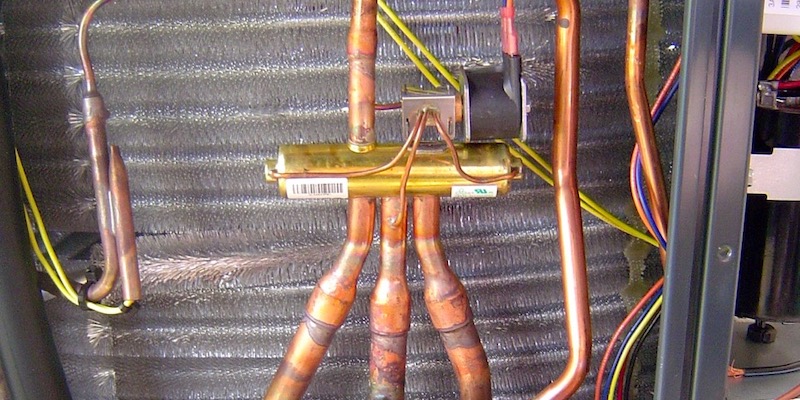How Much Will a Heat Pump Increase My Electric Bill?
by Tyler Castle
11.6 min read

Thinking about installing a heat pump? It’s like getting a magic box that can make your house cozy in winter and cool in summer—while keeping your wallet happy. Heat pumps are an energy-efficient option for heating and cooling your home. Whether you’re considering an upgrade or simply curious, understanding the potential increase in your electricity costs, we’ll explore all this and more to help you make an informed decision.
Key Points of This Article:
- A typical heat pump adds about $52 per month to an electric bill, based on a 3 ton unit in a 2,000 square foot Pennsylvania home.
- Despite the added monthly cost, heat pumps can deliver long term savings, with the Department of Energy estimating $300 to $1,500 in annual savings depending on climate and model.
- Heat pump electricity use varies by factors such as pump type, efficiency ratings, home size, climate, insulation, and user habits.
- Heat pumps are highly efficient systems that provide both heating and cooling, reduce emissions compared to gas furnaces, and may qualify homeowners for tax credits and rebates.
What is a heat pump?
A heat pump is a highly efficient heating and cooling system that transfers heat from one place to another. During winter, heat pumps move heat from your house to the outdoors. Unlike furnaces, heat pumps transfer heat rather than generate their own heat.
How much will my heat pump increase my electricity bill?
Running a heat pump can increase your electric bill by approximately $52 per month.
However, this rate of course varies based on many factors. Adding a heat pump to your home will increase your electricity bill simply because you’re adding a new electrical appliance to your home.
This rate assumes you’re living 2,000-square-foot home in Pennsylvania with an average winter temperature of 30°F. Additionally, you’ve installed a heat pump rated at 3 tons (36,000 BTUs) with a Seasonal Energy Efficiency Ratio (SEER) of 15 with an average electricity bill of $100 a month before installation.
If you use your heat pump for both heating in the winter and cooling in the summer, it consumes about 3,000 kWh over the course of the heating and cooling season. With your electricity rate stable at $0.14 per kWh, this totals approximately $52 added to your monthly electricity bill.
An increase in your electric bill results in long-term savings for your wallet with the right heat pump
Despite a possible increase in your monthly energy bill, heat pumps are highly energy efficient and can decrease your electricity bills.
According to the Department of Energy, the right heat pump in your home can rake in an average annual savings of around $300. In colder climates, the Department of Energy estimates even more savings with $1,500 annually on average with the right model.
Long-term savings for the good of the planet
When it comes to environmental conservation – a topic close to our hearts – choosing energy-efficient solutions like heat pumps for your home plays a vital role in reducing our carbon footprint. In a study conducted by UC Davis, residential heat pumps reduce carbon dioxide emissions by 38–53% over a gas furnace.
Reducing gas usage in our homes also reduces the risk of methane leaks, a leading contributor to the heating of the planet.
Factors that affect heat pump electricity usage
Heat Pump Type: Ground-source heat pumps are generally more efficient but have a higher upfront cost. Ground-source heat pumps have a higher upfront investment because of their extensive installation.
SEER and HSPF Ratings: The higher The Seasonal Energy Efficiency Ratio and the Heating Season Performance Factor ratings, the more efficient your heat pump will be. While models with higher ratings tend to be more expensive, they often lead to more valuable long-term savings.
Home Size: Larger homes require more heating and cooling, leading to higher energy use. This also means that your heat pump will need a bigger capacity to handle your home’s energy needs. Be aware that if you choose a heat pump that is too small and can’t cover your energy demand, your heat pump can increase your electricity bill.
Climate Variations: Although heat pump technology has significantly advanced, heat pumps are most efficient in milder climates and can lose efficiency in extremely cold climates.
How much electricity does a heat pump use?
On average, an air-source heat pump uses anywhere from 3,517 watts to 7,558 watts of electricity for heat pumps ranging from 1-5 tons in size.
When converted to kilowatt-hours, an air-source heat pump uses roughly 3.52 kWh to 7.5 kWh of electricity for every hour of operation. The exact estimate depends on your pump’s efficiency and size.
Factors to consider with heat pump energy consumption
Climate: Heat pumps operate most efficiently in climates with moderate temperatures. In areas where temperatures range from 40°F to 80°F, heat pumps can work with minimal strain, offering highly efficient heating and cooling.
Insulation: The better insulated your home is, the less energy your heat pump will need to maintain a comfortable temperature. Without proper insulation, your machine has to work harder to retain heat.
Sealing Air Gaps: Simple upgrades like adding weather stripping and caulking air gaps can have a big impact on how efficiently your heat pump operates, ultimately leading to lower electricity bills. The fewer air gaps your home has, the more your home can retain heat and air conditioning.
User Habits: Consistently practicing energy-saving habits like closing curtains at night during winter to retain heat or using ceiling fans to help circulate air can also reduce the amount of work your heat pump needs to do.
How heat pumps work
How a heat pump works depends on how you plan to use it:
In the summer a heat pump works by using a refrigerant to absorb unwanted heat from your home and transferring it outdoors. The refrigerant evaporates into a gas as it absorbs the heat, and this gas is then pumped outside to the outdoor coil, where the heat is released into the outside air. The cooled refrigerant is then cycled back indoors, repeating the process to keep your home cool.
In winter, a heat pump works by absorbing air from outside your home that’s combusted with a low-pressure refrigerant. The gas refrigerant in the heat pump can be pressurized, raising the temperature of the air that’s pulled in. The pressurized gas refrigerant is piped back into your home and warms up the air inside.
What does a heat pump look like?
The exact look of your heat pump will vary based on your model, size, and type. But here’s a general description of what your heat pump will look like:
From outside your home, a heat pump typically looks like a large metal box or cabinet, usually placed on the ground outside the building. This contains a compressor and condenser.
From the inside, there’s usually a smaller wall-mounted or ceiling-mounted unit resembling a standard air conditioner. This contains the air handler and evaporator.
Usually hidden within the walls of your home, insulated copper tubing can be seen running between the indoor and outdoor units, carrying refrigerant. Lastly, a wall-mounted control panel inside the home to adjust temperature settings.
4 main types of heat pumps for homes
If you’re considering a heat pump, keep in mind there are four types of heat pumps for homes to consider. Each heat pump type for your home has a special purpose and is ideal for different climate zones and capacities.
Ducted Air-Source Heat Pumps: One of the most common types of heat pumps for homes is an air-source heat pump. This system transfers between your home and outside air.
In the summer, it extracts heat from your home and releases it outdoors, while in the winter, it draws heat from the outdoor air and brings it inside, even at lower temperatures. While this type of heat pump is highly efficient, it’s not ideal for locations that experience prolonged cold weather.
Ductless Air-Source Heat Pumps: If your home doesn’t have existing ductwork, this model is for you! This type of heat pump for your home is ideal for zone heating your space. Like air-to-water heat pumps that are also ductless, this type of heat pump provides heat by heating water through a radiator.
Ground-Source (Geothermal) Heat Pumps: Just like how geothermal energy extracts heat from the ground to make its energy, ground-source heat pumps work the same way. Ground-source heat pumps work by transferring heat between your house and the ground. Highly efficient Geothermal heat pumps use 61% less energy than a standard model, control humidity, and are sturdy and reliable.
If you’re considering a ground-source heat pump, keep in mind that this type of heat pump for your home has a complex installation process and requires lots of ground to install well-piping, pumps, and controls.
Absorption Heat Pumps: Also known as “gas-fired” heat pumps, absorption heat pumps use thermal energy as their heating source. Absorption heat pumps are more complex and require larger units but provide lower electricity demand.
Are heat pumps energy efficient?
Heat pumps are highly energy efficient! According to the Consumer Report, modern heat pumps can reduce your electricity use for heating by up to 75%!
Heat pumps are known for their ability to move heat, not create it Unlike electric space heaters, which convert electricity directly into heat, heat pumps use less electricity to achieve the same heating goals with a different method.
Unlike conventional systems, heat pumps can be used for both heating in winter and cooling in summer, making them a versatile and energy-efficient choice for all seasons. This dual functionality means that homeowners can save on both their heating and cooling bills, without needing to invest in separate systems for each. Just be mindful of what heat pump type you choose, not all can handle dual capabilities.
Tax Credits for heat pumps
Companies like Energy-Star offer tax credits for homeowners who install energy-efficient systems like heat pumps. For even more savings, there’s tax credits for up to $3,200 if you have made a significant amount of energy efficient home improvements after January 1st, 2023.
State programs provide additional tax rebates that could save homeowners thousands of dollars on their energy-efficient upgrades. For example, in Pennsylvania, residents can receive tax rebates for purchasing a new plug-in hybrid, plug-in electric vehicle.
These incentives not only help lower the upfront costs but can significantly reduce the payback period, making heat pumps a more attractive option for homeowners looking to save on both installation and energy costs.
How do I know if I have a heat pump?
As a homeowner, you might already have a heat pump installed without even knowing it! If you’re wondering, “How do I know if I have a heat pump?” Let us help you. Here’s how you can know for sure if you have a heat pump in your home:
- The best way to confirm if you have a heat pump is to inspect your outdoor unit. While air conditioners look similar to heat pumps, air conditioners don’t provide dual function like most models of heat pumps can. If your system both heats and cools your home using this outdoor unit, you likely have a heat pump.
- Heat pumps contain a component called a reversing valve, which allows the system to switch between heating and cooling modes.
- Set your thermostat to heat mode, then adjust it to a temperature higher than your home’s current temperature. If the outdoor unit starts running, that’s a sign you have a heat pump, since central air conditioners don’t run in heating mode.
- Check for air ducts; if there are no ducts, it’s probably a heat pump.
- A sure-fire way to confirm if you have a heat pump is to check your manufacturer label. If the label lists terms like “heat pump” or “HSPF” (Heating Seasonal Performance Factor), this is a sign you have a heat pump.
How long do heat pumps last?
A heat pump typically lasts an average of 15 years. The lifespan of your heat pump can be extended with proper care to your unit and regular maintenance.
The exact length of how long your heat pump lasts depends on factors like your location and climate, your energy consumption, if it’s a dual heat or cooling model, and the size of your home.
Heat pumps in more temperate climates may last longer because of less strain, while those in extreme climates may wear out faster. In the same way, if your heat pump is used year-round for both heating and cooling purposes and your model isn’t up to date, your machine can experience more wear and tear. Lastly, larger homes require more heat and a larger unit to fit demand. If your heat pump is too small, it won’t be able to keep up and will wear out quicker.
Choosing to install a heat pump is a proactive step toward enhancing your home’s energy efficiency and comfort. While this may lead to a modest increase in your electricity usage, the long-term benefits—including potential energy savings and reduced environmental impact—often outweigh the initial costs. At Santanna, we are committed to supporting homeowners like you in making informed decisions about energy consumption. We offer a range of energy solutions tailored to your needs and lifestyle.
There's peace of mind in knowing you'll pay the same monthly supply cost amount for your electricity or natural gas supply without any uncertainty — no matter what. Santanna's Unlimited Energy option *protects your bills from fluctuating supply charges no matter the changes in seasons. For over 35 years, Santanna has served customers in Illinois, Indiana, Pennsylvania, Michigan, and Ohio. Our mission is to provide innovative and cost-effective energy solutions that will help our customers achieve their energy goals.
* Restrictions apply. Enrollment based upon program eligibility. Customers using more than 125% of normal monthly usage as determined by Santanna may be required to switch plans.
Tyler is an experienced energy professional, having worked for Santanna Energy Services, for the past four years. He is passionate about renewable energy and believes that diversifying the energy grid is the key to a sustainable future. Tyler is dedicated to supplying consumers with the best possible energy solutions and works diligently to make sure that Santanna can deliver the highest quality service.










